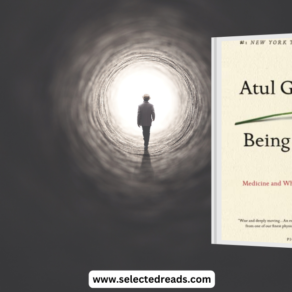“Unnatural Causes,” authored by Dr. Richard Shepherd, invites readers into the meticulous and often poignant world of forensic pathology, offering an illuminating perspective on death that most people don’t experience. As the United Kingdom’s leading forensic pathologist, Shepherd has performed over 23,000 autopsies, using his keen analytical skills to uncover secrets the dead can’t take to the grave.
Shepherd’s journey into forensic pathology was shaped by personal experience. His first encounter with an autopsy at medical school struck a deep chord, as he held a heart damaged by disease, reminiscent of his mother’s premature death from heart disease. This personal connection fueled his desire to give a voice to the dead and bring closure to the living, even when the answers aren’t pleasant.
From high-profile cases such as Princess Diana and victims of 9/11 to everyday people whose deaths were shrouded in mystery, Shepherd sheds light on the hidden stories each body has to tell. His job takes him from sterile autopsy rooms to crime scenes, from murder trials to private moments with grieving families.
His stories are not merely recountings of the macabre. They offer deep insights into human nature, societal issues, and the justice system. Shepherd navigates the delicate balance between detachment and empathy, often confronted with the brutality of murder and the sadness of untimely deaths.
“Unnatural Causes” is not only a journey into death but also a profound exploration of life. It underscores the often-underestimated role of pathologists in the justice system and sheds light on the humanity that pervades even the grimmest of tasks. While the book is chilling and deeply moving, it is also characterized by Shepherd’s passion for his work, his pursuit of truth, and the respect and empathy he extends towards the deceased and their loved ones.
Despite the inherent grimness of his occupation, Shepherd consistently emphasizes the importance of life, underscoring the fragile beauty of existence, the quest for justice, and the hope that lies even within the darkest narratives of death. Through his engaging storytelling, the book leaves readers with a greater understanding of the complex ties between life, death, science, and justice.
Book Club Questions
Here are some thought-provoking book club questions for the book “Unnatural Causes“:
- Dr. Richard Shepherd recounts numerous high-profile cases he has worked on, including Princess Diana and 9/11 victims. Which case stood out to you the most and why?
- How does Shepherd’s personal history and his mother’s premature death from heart disease affect his approach to his work?
- Discuss the ethics of forensic pathology as presented in the book. How do you feel about the way forensic pathologists interact with both the living and the dead?
- How does “Unnatural Causes” change or confirm your view about the relationship between science and justice?
- What does the book reveal about the psychological impact of forensic pathology? How does Shepherd cope with the emotional toll of his profession?
- How does Shepherd balance his professional detachment with empathy towards the deceased and their families?
- Shepherd emphasizes the importance of life while dealing with death. How does this paradox reflect in his stories?
- Do you think the book provides a realistic portrayal of forensic pathology, or does it lean towards sensationalism?
- In the book, Shepherd discusses cases where the initial cause of death was misjudged. How does this impact your trust in the medical profession and the justice system?
- How does “Unnatural Causes” portray the process of grief, both in terms of the families of the deceased and Shepherd himself?
- Discuss the writing style of the book. How does Shepherd’s narrative style influence your perception of the cases he presents?
- How does “Unnatural Causes” compare to other books in the true crime genre or medical memoirs you’ve read before?
I hope you find Unnatural Causes summary helpful!







